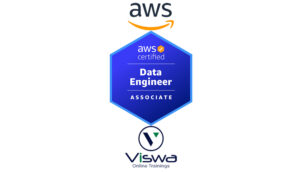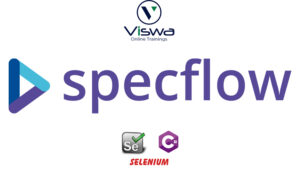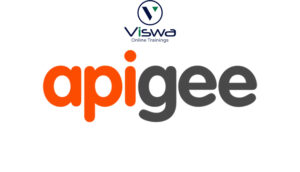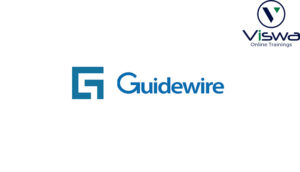Docker and Kubernetes Certification Training
One of the top providers of online IT training worldwide is VISWA Online Trainings. To assist beginners and working professionals in achieving their career objectives and taking advantage of our best services, We provide a wide range of courses and online training.
Learners : 1080
Duration : 30 Days
About Course
Learn in-depth concepts about user interface and navigation, users, and tasks, and data administration with our Docker and Kubernetes platforms. You will also comprehend the Kubernetes architecture’s nodes, pods, labels, and annotations. Additionally, you will learn how to expose apps on clusters outside of the cluster, for example, by installing a Kubernetes Cluster on a cloud server. Use Cloud labs to get practice building knowledge bases and service catalogs, as well as populating and securing databases. Learn how to implement business rules, client scripts, and process activities, and approval structures. Enrol today to earn your certification.
Docker and Kubernetes Training Course Syllabus
✔ Docker Architecture
✔ Images and layers
✔ Underlying technology of DockerNamespaces, groups, etc.,
✔ Docker CE Vs Docker EE and supported platforms
✔ Pulling images from Docker registry
✔ The Docker Hub
✔ Docker Engine Installation on Linux Servers (CentOS/Ubuntu)
✔ Docker commands
✔ Images, ps, pull, push, run, create, commit, attach, exec, cp, rm, RMI,
Login, export, import, pause, unpause, system, volumes, build, rename,
Save, tag, network, logs, port, search, history
✔ Container volume management
✔ Creating custom network (bridge)
✔ Building custom images using Dockerfile and through container and pushing to the Docker hub
✔ Creating containers with limited resources (CPU, memory, etc.,)
✔ Building apache with MySQL database storage using Dockerfile
✔ Assigning/removing multiple networks to the running container.
✔ Selecting storage driver for the Docker Engine
✔ Setting limits on the resource like CPU, memory for running container
✔ Difference between Docker Swarm and Kubernetes Orchestration
✔ Kubernetes overview
✔ Kubernetes Architecture
✔ Designing a Kubernetes cluster (1 Master, 2Worker)
✔ Building multiple Container In same pod
✔ Replication Controller
✔ ReplicaSet
✔ Deployment
✔ Rolling updates of the Pods with the Deployment
✔ service (ClusterIP, NodePort, and LoadBalancer)
✔ Taint and Tolerations
✔ Pod affinity and Antiaffinity
✔ Node affinity and Antiaffinity
✔ POD Autoscaling
✔ Rolling Updates
✔ POD CPU and Memory reservation
✔ Etcd cluster backup
✔ Service Discovery using DNS
✔ Config Map
✔ Secrets
✔ Volumes and Volumes Auto/Dynamic provisioning(AWS)
✔ DaemonSets
✔ Resource Usage Monitoring
✔ Autoscaling
✔ Kubernetes Setup.
✔ Introduction to Kops (AWS).
✔ Running first app on Kubernetes.
✔ Scenario with working example
✔ The Kubernetes Master Services
✔ Resource Quotas
✔ Namespaces
✔ User Management
✔ Node Maintenance
| Live Instructor Based Training With Software |
| Lifetime access and 24×7 support |
| Certification Oriented content |
| Hands-On complete Real-time training |
| Get a certificate on course completion |
| Flexible Schedules |
| Live Recorded Videos Access |
| Study Material Provided |
Docker and Kubernetes Training - Upcoming Batches
7th NOV 2022
8 AM IST
Coming Soon
AM IST
5th NOV 2022
8 AM IST
Coming Soon
AM IST
Don't find suitable time ?
CHOOSE YOUR OWN COMFORTABLE LEARNING EXPERIENCE
Live Virtual Training
-
Schedule your sessions at your comfortable timings.
-
Instructor-led training, Real-time projects
-
Certification Guidance.
Self-Paced Learning
-
Complete set of live-online training sessions recorded videos.
-
Learn technology at your own pace.
-
Get access for lifetime.
Corporate Training
-
Learn As A Full Day Schedule With Discussions, Exercises,
-
Practical Use Cases
-
Design Your Own Syllabus Based
Docker and Kubernetes Training FAQ'S
An open-source platform called Docker is used to manage software development. It is primarily used to package the configurations and dependencies that the programme or application requires to run into a container, which has a number of benefits including portability. On the other side, Kubernetes is used to enable the manual linking and orchestration of numerous containers that are running on various hosts and were built using the Docker containerization technology.
A node is the smallest piece of hardware in Kubernetes. It is used to describe a single machine in a cluster that can function as a physical machine in the data centre or as a virtual machine from a cloud provider. Each machine in the Kubernetes cluster has the ability to replace another machine.
The default scheduler for Kubernetes is a Kube-scheduler. Nodes are assigned to freshly generated pods using it.
Daemon sets are sets of pods that run on a host and are used for host layers attributes like monitoring networks or simple networks.
Get ahead in your career by learning Docker and Kubernetes through VISWA Online Trainings
For data gathered by the Kublet, a Heapster is a metrics gathering and performance monitoring solution.
Reviews
 Lavanya Posina2024-09-30To get the SAP S4HANA MM training is really worth from VISWA Technologies. I would like to thank you for providing an excellent training.
Lavanya Posina2024-09-30To get the SAP S4HANA MM training is really worth from VISWA Technologies. I would like to thank you for providing an excellent training. Krishna Grandhi2024-09-19I attended PBCS course. Trainer has good knowledge and his explanation is easy to understand. The support team is also supportive during the training period. Overall experience is good.
Krishna Grandhi2024-09-19I attended PBCS course. Trainer has good knowledge and his explanation is easy to understand. The support team is also supportive during the training period. Overall experience is good. Siddhartha Mothukuri2024-09-10Learnt SAP EWM and it has been a really good experience with VISWA Online Trainings and trainer has been excellent in terms of his understanding in business as well as SAP. Thank you
Siddhartha Mothukuri2024-09-10Learnt SAP EWM and it has been a really good experience with VISWA Online Trainings and trainer has been excellent in terms of his understanding in business as well as SAP. Thank you Lakshmiprasanna Annem2024-08-01Thanks chaitanya arrange for sap bw on Hana job support. I will recommend definitely anyone.
Lakshmiprasanna Annem2024-08-01Thanks chaitanya arrange for sap bw on Hana job support. I will recommend definitely anyone. VINOD reddy2024-07-23Amazing Oracle Transportation Management (OTM) training! Definitely recommend.
VINOD reddy2024-07-23Amazing Oracle Transportation Management (OTM) training! Definitely recommend. Arvind P2024-06-28Good institute. Very responsible. As a trainer I got a good experience with them
Arvind P2024-06-28Good institute. Very responsible. As a trainer I got a good experience with them srinivasulu p2024-05-14I have recently enrolled azure cloud security training. There was lots of interaction sessions. It was best online learning platform.
srinivasulu p2024-05-14I have recently enrolled azure cloud security training. There was lots of interaction sessions. It was best online learning platform. Mahendra Reddy2024-05-14I would definitely recommend it anyone looking for generative AI course. This is friendly course thanks phani kumar
Mahendra Reddy2024-05-14I would definitely recommend it anyone looking for generative AI course. This is friendly course thanks phani kumar




